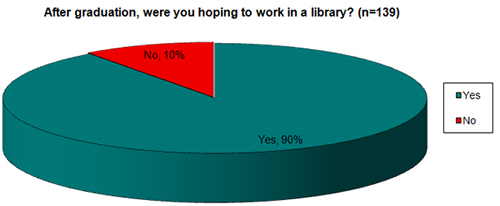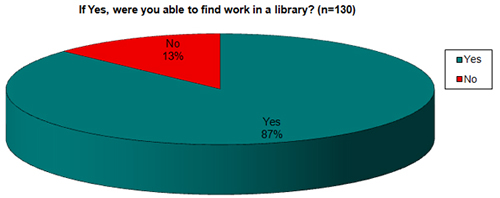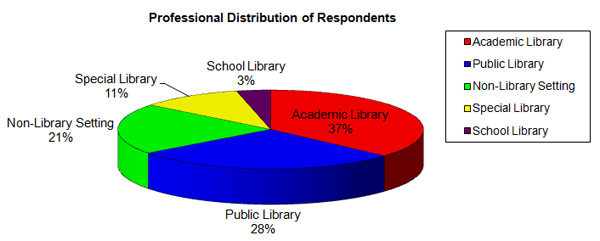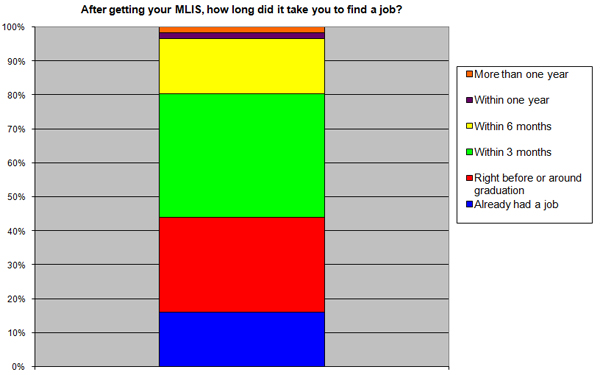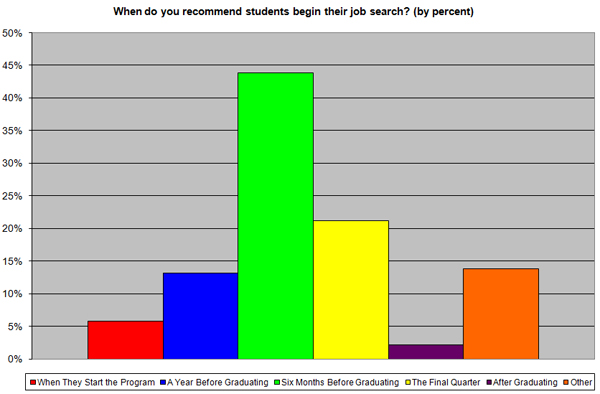|
Features The Silverfish 2008 Alumni SurveyThe Study | iSchool Experience | Job Hunting Tips
The Study In this article, we will proceed question-by-question through the survey and the responses that we received. In some cases the answers received will be cross-referenced with other data, but for the most part data will be analyzed in isolation. Again, those interested in exploring the data on their own can e-mail the Silverfish staff. Demographics: First it is important to look at who is represented in our sample. All of the respondents received their MLIS from the University of Washington. As you can see in Figure 1 and Figure 2, 90% of respondents of respondents got their MLIS with the hope of working in a library, and of that 90%, 87% got their wish. That means that 81.3% of respondents are working as librarians, or have worked as librarians since graduation.
Figure 1
Figure 2
As for what kinds of librarians are represented, Figure 3 shows that more than one-third (36%) of respondents are Academic Librarians, and slightly less than one-third (28%) are Public Librarians. Special Librarians (which included people working for corporations, state libraries, law firms, and laboratories, among others) were 11% of our sample. We had very few responses from people in school libraries (4%).
Figure 3
People working in a non-library setting made up 21% of our sample. Some of the non-library environments represented in this portion of the sample include:
Job Hunting: The survey included a number of questions related to the job search. Figure 4 shows responses to the question, “After getting your MLIS, how long did it take you to find a job?” Almost half of respondents were employed by the time that they graduated. Of those that were not, the majority had found jobs by within 3 months of graduation. That is very good news for MLIS grads, but it should be noted that many respondents reported that the work that they found was substitute or part-time, and that it took an additional year before they found steady, full-time employment within their field. Figure 4
Figure 5 presents results dealing with when MLIS students should begin looking for a job. When asked about when students should begin their job searches, the majority (44%) thought that starting to look six months before graduating was a safe bet. More than 20% felt that students should begin sooner, a year or more before graduating. 20% said that the term before graduating was sufficient, but very few (3%) recommended waiting until after graduation. Those that responded “Other” were careful to point out that the length of the application and interview process differs for different positions, with public libraries typically moving much more quickly than academic libraries. People’s varying circumstances are also a factor: those that can afford to might want to take a break after school and allow themselves extra time for the job hunt. Finally, many respondents stressed the importance of networking among classmates and professionals, and the benefit of seeking out student employment and internships in the libraries of their choice. Figure 5
Previous Section | Next Section |
April 7,
2008
|

